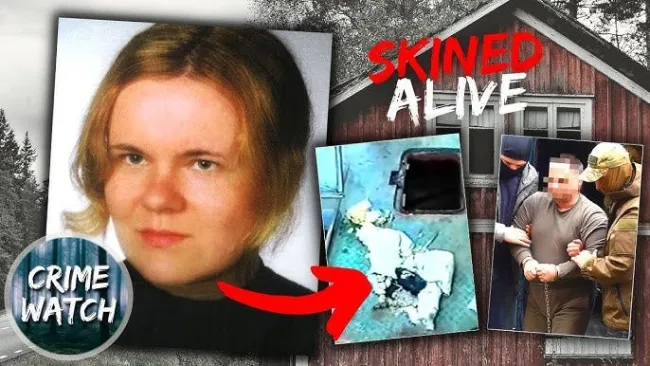The Unsolved Murder of Katarzyna Zowada: Poland’s Most Chilling Crime Mystery
In late 1998, a gruesome crime shook the city of Kraków, Poland. Katarzyna Zowada, a 23-year-old university student, disappeared without a trace—only for parts of her remains to surface months later in a horrifying discovery. Her skin had been removed and allegedly fashioned into a "suit," suggesting a level of brutality rarely seen in criminal history. More than two decades later, the case remains one of Poland’s most unsettling unsolved mysteries.
A Young Life Tragically Ended
Katarzyna Zowada was born on June 1, 1975, and studied at Jagiellonian University in Kraków. Friends described her as kind and reserved, though she struggled with depression, especially after her father’s death in 1996. In November 1998, she was supposed to meet her mother at a psychiatric clinic but never arrived. When she failed to return home, her worried mother reported her missing. However, the truth behind her disappearance would prove far worse than anyone had imagined.
A Terrifying Discovery
In January 1999, a shocking turn of events occurred. A tugboat crew navigating the Vistula River discovered what appeared to be human skin floating in the water. DNA analysis later confirmed it belonged to Katarzyna. Further searches led to the recovery of her severed leg, confirming the brutal nature of her murder. What made the case even more horrifying was the way her skin had been removed and reportedly manipulated into a wearable form—suggesting that her killer had deeply disturbing intentions.
A Long and Difficult Investigation
Although Katarzyna was declared missing in November 1998, her case remained unsolved for years. Initial police efforts yielded few results, and the investigation quickly went cold. However, nearly two decades later, forensic advancements and international cooperation breathed new life into the case. In 2017, authorities arrested Robert Janczewski, a 52-year-old resident of Kraków’s Kazimierz district, after evidence linked him to the crime scene.
Janczewski had been a suspect in the original investigation and was known for harassing women. Disturbingly, he had also been seen visiting Katarzyna’s grave. His background—including experience working with human and animal remains, as well as training in martial arts—painted him as someone potentially capable of such a gruesome crime. Despite his arrest, legal complications led to his release in 2024 due to insufficient evidence for trial.
The Role of Forensic Science
Given the complexity of the case, forensic experts played a crucial role in re-examining the evidence. In 2012, a specialized cold case unit revisited the crime using modern forensic techniques. A team at Wrocław Medical University reconstructed Katarzyna’s injuries, revealing that she had endured extensive torture before her death. Further analysis in 2014, with assistance from the FBI, pointed to the killer’s sadistic tendencies and possible links to martial arts. In 2016, forensic specialists in Portugal confirmed that Katarzyna had been severely abused before she was murdered, reinforcing suspicions that the crime was premeditated and methodically executed.
A Crime That Still Haunts Poland
Katarzyna Zowada’s murder remains one of the most disturbing cases in Poland’s history. Even after decades, it continues to capture public attention, serving as a grim reminder of the depths of human cruelty. Media outlets, true crime enthusiasts, and investigators frequently revisit her story—not just to shed light on the horror she endured but also to highlight law enforcement's dedication to solving the case.
For Katarzyna’s loved ones, the pain of her loss has never faded. Her tragic fate has sparked discussions about forensic advancements, victim protection, and the relentless pursuit of justice, even in the most complex cases.
Conclusion
The horrifying details of Katarzyna Zowada’s murder remind us how unpredictable and shocking crime can be. While significant progress has been made in identifying a suspect, the legal system’s inability to convict him has left the case unresolved. As the investigation continues, her story stands as a stark reminder of why justice must be pursued, no matter how much time has passed. Katarzyna’s memory endures as a symbol of the fight against violence, and her case remains a haunting mystery that Poland refuses to forget.
